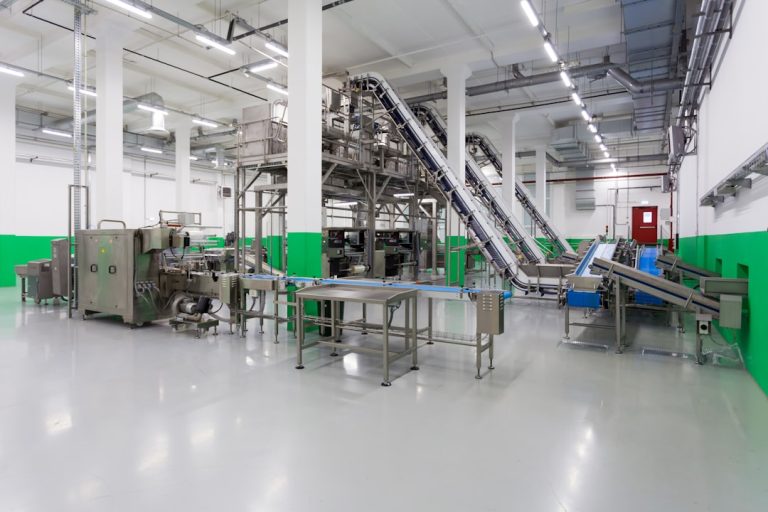
Childcare workers play a pivotal role in the early development of children, serving as the first educators outside the home environment. Their influence extends beyond mere supervision; they are instrumental in fostering social, emotional, and cognitive growth during a critical period of a child’s life. Research indicates that the early years are foundational for lifelong learning, and childcare workers are often the first to introduce children to structured learning experiences.
They create environments that stimulate curiosity and encourage exploration, which are essential components of early childhood education. Moreover, childcare workers provide a safe and nurturing atmosphere where children can thrive. They are trained to recognize and respond to the individual needs of each child, ensuring that every child feels valued and understood.
This personalized attention is crucial, as it helps build a child’s self-esteem and confidence. In many cases, childcare workers also serve as advocates for children’s rights and well-being, ensuring that their voices are heard and their needs are met. The importance of these professionals cannot be overstated; they lay the groundwork for future educational success and social integration.
Key Takeaways
- Childcare workers play a crucial role in supporting working families by providing a safe and nurturing environment for children.
- Childcare workers have a significant impact on child development, helping children learn and grow in a positive and supportive setting.
- Childcare workers face challenges such as low wages, long hours, and limited access to benefits, which can impact their well-being and job satisfaction.
- Training and education in early childhood development are essential for childcare workers to provide high-quality care and support for children.
- There is a high demand for childcare workers in the USA, and the future outlook for this profession is expected to remain strong.
The Role of Childcare Workers in Supporting Working Families
Creating a Structured Environment for Learning and Play
By providing a structured environment where children can learn and play, childcare workers enable parents to focus on their jobs, knowing that their children are in capable hands. Furthermore, childcare workers often serve as a bridge between families and educational resources. They can provide parents with valuable information about child development, behavioral strategies, and community resources.
Guiding Families through Parenting and Work Commitments
This guidance is particularly beneficial for families who may be navigating the complexities of parenting while managing work commitments. By fostering open communication with parents, childcare workers help create a collaborative environment that supports both the child’s development and the family’s needs.
Fostering Consistency in Learning and Behavior
This partnership is vital in ensuring that children receive consistent messages about learning and behavior both at home and in childcare settings.
The Impact of Childcare Workers on Child Development

The impact of childcare workers on child development is profound and multifaceted. Research has shown that high-quality early childhood education can lead to better academic outcomes, improved social skills, and enhanced emotional regulation in children. Childcare workers are trained to implement developmentally appropriate practices that cater to the diverse needs of children.
They engage children in activities that promote critical thinking, problem-solving, and creativity, all of which are essential skills for success in later life. Additionally, childcare workers play a crucial role in fostering social interactions among children. Through guided play and group activities, they help children learn how to communicate effectively, share resources, and resolve conflicts.
These social skills are foundational for building relationships throughout life. Moreover, childcare workers often introduce concepts such as empathy and cooperation, which are vital for emotional intelligence. By modeling positive behaviors and providing opportunities for social engagement, childcare workers significantly contribute to the holistic development of children.
The Challenges Faced by Childcare Workers
| Challenges | Impact |
|---|---|
| Low wages | Financial instability |
| Long working hours | Physical and mental exhaustion |
| Lack of resources | Difficulty in providing quality care |
| Emotional stress | Impact on mental health |
Despite their critical role in society, childcare workers face numerous challenges that can impact their effectiveness and job satisfaction. One significant challenge is the low compensation associated with the profession. Many childcare workers earn wages that do not reflect the importance of their work or the level of responsibility they carry.
This financial strain can lead to high turnover rates within the industry, disrupting the continuity of care for children and creating instability in childcare settings. In addition to financial challenges, childcare workers often deal with demanding workloads and insufficient resources. Many facilities operate with limited staff, which can lead to increased stress and burnout among workers.
Furthermore, childcare workers must navigate complex regulations and standards set by licensing agencies, which can add another layer of pressure to their already demanding roles. These challenges highlight the need for systemic changes within the industry to support the well-being of childcare workers.
The Training and Education Required for Childcare Workers
To effectively support child development and provide high-quality care, childcare workers must undergo specific training and education. Many states require childcare workers to have at least a high school diploma or equivalent; however, higher education credentials can significantly enhance a worker’s knowledge and skills. Associate’s or bachelor’s degrees in early childhood education or related fields are increasingly preferred by employers seeking qualified staff.
Training programs typically cover essential topics such as child development theories, health and safety regulations, curriculum planning, and behavior management strategies. Additionally, many programs emphasize hands-on experience through internships or practicums in licensed childcare settings. This practical experience is invaluable as it allows aspiring childcare workers to apply theoretical knowledge in real-world situations.
Ongoing professional development is also crucial; many states require childcare workers to complete continuing education courses to maintain their licenses or certifications. This commitment to lifelong learning ensures that childcare workers remain informed about best practices and emerging trends in early childhood education.
The Demand for Childcare Workers in the USA

The demand for childcare workers in the United States has been steadily increasing due to several factors, including rising birth rates, an expanding workforce, and a growing recognition of the importance of early childhood education. As more families seek quality childcare options, the need for qualified professionals has become more pronounced. According to the U.S. Bureau of Labor Statistics (BLS), employment for childcare workers is projected to grow significantly over the next decade, reflecting an ongoing need for these essential services. Moreover, societal changes have contributed to this demand. With more parents entering the workforce—particularly mothers—there is an increasing reliance on formal childcare arrangements. Additionally, many states have implemented initiatives aimed at improving access to early childhood education programs, further driving the need for skilled childcare workers. This trend is particularly evident in urban areas where dual-income households are more common. As communities recognize the value of investing in early childhood education, the demand for qualified childcare professionals will likely continue to rise.
The Compensation and Benefits for Childcare Workers
Compensation for childcare workers remains a contentious issue within the industry. Despite their critical role in child development and support for working families, many childcare workers receive wages that are significantly lower than those of other professionals with similar levels of education and responsibility. According to recent data from the BLS, the median annual wage for childcare workers is considerably below the national average for all occupations.
This disparity raises concerns about the sustainability of the workforce and the ability to attract new talent into the field. In addition to low wages, benefits such as health insurance, retirement plans, and paid time off are often limited or nonexistent for many childcare workers. This lack of benefits can exacerbate financial instability and contribute to high turnover rates within the industry.
Some organizations are advocating for better compensation packages and improved working conditions as a means of retaining skilled professionals and ensuring high-quality care for children. Addressing these issues is essential not only for the well-being of childcare workers but also for the overall quality of early childhood education programs.
The Future of Childcare Workers in the USA
The future of childcare workers in the United States is poised for transformation as society increasingly recognizes their value in shaping future generations. Advocacy efforts aimed at improving wages and working conditions are gaining momentum, with various stakeholders—including policymakers, educators, and parents—calling for systemic changes within the industry. As awareness grows regarding the importance of early childhood education in promoting long-term academic success and social well-being, there may be increased investment in training programs and resources for childcare professionals.
Technological advancements also hold potential for reshaping the landscape of childcare work. Online training platforms can provide accessible professional development opportunities for current workers while attracting new individuals into the field. Additionally, innovations in educational technology may enhance learning experiences for children in care settings, allowing childcare workers to implement more engaging curricula.
As we look ahead, it is clear that addressing the challenges faced by childcare workers will be crucial in ensuring a robust workforce capable of meeting the needs of families and children across the nation. By prioritizing fair compensation, comprehensive training programs, and supportive working environments, we can create a sustainable future for this vital profession that ultimately benefits society as a whole.
Childcare workers play a crucial role in the development and well-being of children in the United States. According to a recent article on com/’>Careers in the USA, the demand for childcare workers is expected to grow in the coming years as more families require assistance with childcare.
This occupation offers a rewarding career path for individuals who are passionate about working with children and making a positive impact on their lives. For more information on occupations in the USA, visit this link.
FAQs
What is the role of a childcare worker in the USA?
Childcare workers in the USA are responsible for taking care of children while their parents are at work or otherwise occupied. They may work in daycare centers, preschools, or in private households.
What are the educational requirements for becoming a childcare worker in the USA?
In the USA, most childcare workers are required to have a high school diploma or equivalent. Some positions may require additional certification or early childhood education coursework.
What is the average salary of a childcare worker in the USA?
According to the U.S. Bureau of Labor Statistics, the median annual wage for childcare workers in the USA was $25,460 in May 2020.
What are the job prospects for childcare workers in the USA?
The demand for childcare workers is expected to grow as the need for childcare services continues to rise. However, job prospects may vary by location and individual qualifications.
What are the typical duties of a childcare worker in the USA?
Childcare workers in the USA are responsible for supervising and caring for children, preparing meals and snacks, organizing activities, and ensuring the safety and well-being of the children in their care.






